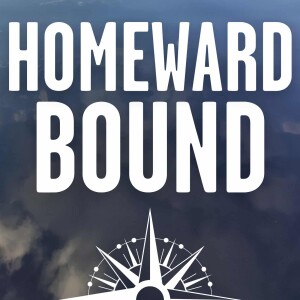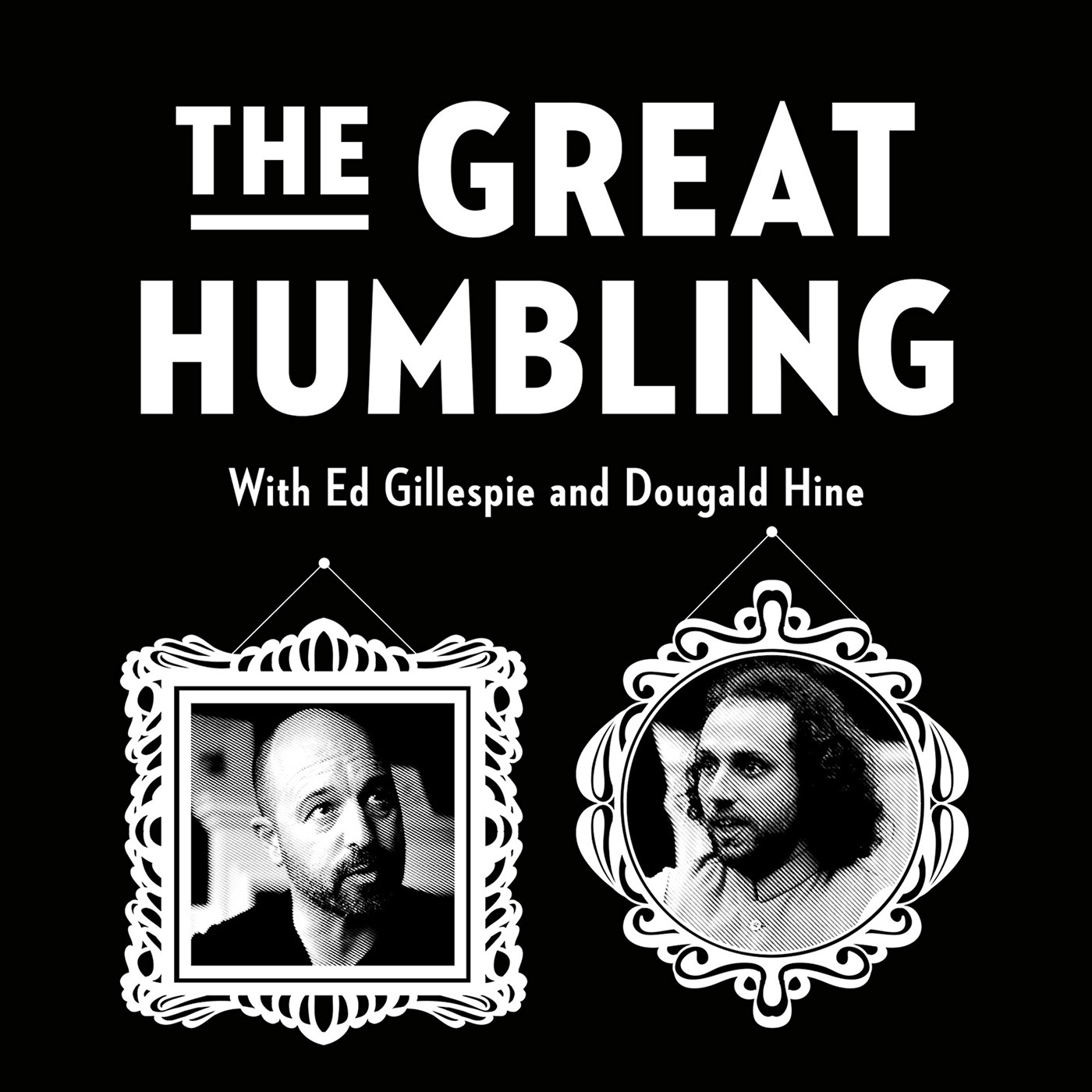
Homeward Bound (including The Great Humbling)
Society & Culture

We start with Martin Shaw’s hare-piece (hair piece?) - ‘A Hare’s Leap or a Rabbit’s Hop?’, a typically stirring offering from Dr Shaw that bristles with energy and soul, and backbone...
“Culture is being forced to leap at this moment, but we run grievous risk of a rabbit hop back to safety not a hare leap into the deeper life.”
“[Hare] nags, and pulls and bites until something vast is happening to us. We are dragged into the presence of strange angels and so pathetically grateful we can only weep in this Chapel Perilous. For Hare, the Chapel Perilous is the fecund state of that changeable dimension we gesture to and dimly call our heart. Perilous is it, when the animal presences are absent, when there’s no sweet stink of the low bellied spirits. Hare will clamp his buck teeth straight into the beating organ, swinging back and forth like a lunatic pirate on the rigging in the most Machiavellian storm of most trembling imaginations till we are out the door, into the night, into the storm, into the rain.”
As Martin says - ‘Artists are waiting to get LEAPT’
We explore the Vasteras hares and our mutual observations of magpies this week.
Ed listened to a great interview with Margaret Atwood by Cheryl Strayed in her new podcast ‘Sugar Calling’. Atwood is known for her environmental activism, and mentioned Barry Lord, co-founder of Lord Cultural Resources, an international Museum Planning Consultancy…
His book ‘Art & Energy - How Culture Changes’ describes how the dominant energy system of the day defines the culture, it’s actions and values - and that energy transitions are by their very nature - therefore culture wars:
- Wood - access to land, forest, feudal
- Coal - culture of production and the industrial revolution (massive manpower)
- Oil and Gas - production to consumption
- Electricity - culture of modernism
- Nuclear - culture of anxiety
- Renewables - culture of stewardship
Dougald responds to this with ‘A virus doesn’t care about your stories’ Daniel Schmachtenberger – and asks what’s culture got to do with a pandemic...
Dougald talks about ‘Swedish exceptionalism, cultural memory and the Prime Minister’s recent speech – “Lives, health and jobs are under threat” – putting economic damage there alongside human casualties
Ed talks about British ‘deference’, obedience, over-zealous ‘busy-body’ police officers and general acceptance and respect of authority, but also British exceptionalism - lots of ‘Blitz spirit’ and war metaphors (as we discussed in Episode 4) and the Prime Minister’s lucky escape spun into ‘indomitable strength of character’ as if grit, determination and a stiff upper lip defined one’s survival chances?
Ed also refers to John Snow and and the original ‘contact tracing’ of cholera in Soho in 1850’s. Do we love/laud mavericks AFTER the fact…and do we LOVE a bit of mad, maverick conspiracy theory too?
Dougald explains Sweden has had more casualties than the other Nordic countries, but it doesn’t have the exponential rise in deaths that ought to be what happens if you don’t have a strong lockdown, and says it’s been a bit humbling for him having been deeply troubled by what felt like a relatively casual approach here, to see that it’s not playing out in the way that a lot of people feared, perhaps due to local, culturally specific factors – the amount of “social distancing” within the existing norms?
And is there an element of something getting lost in translation? Are there indirect means of influencing behaviour that are almost illegible to those of us not bred into the Swedish way of doing things, but that are having a major effect?
Ed reflects on the role of leadership right now too…
In uncertainty we seek familiarity - but unfortunately the reality of evolving understanding means leaders are having to constantly revise what they say, as new evidence emerges, new guidance, sometimes contradictory, is issued. Is it a time in which deeply held beliefs can turn out to be completely wrong?
Leadership right now feels a lot more like ‘holding space’ for vulnerability, creating psychological safety - but being really honest, able to admit ‘not knowing’ and having permission not to be a hero.
We conclude with a good letter from the CEO of AirBnB to employees: ‘We don’t know when travel will return. When it does it will be different’
Are they returning to the idea of human connection - real people in real homes. What does it mean to “Travel like a human”...feels like a humbling
Does a culture need to be broken by beauty, truth or its own consequences in order to be opened up to real change?
This is a public episode. If you would like to discuss this with other subscribers or get access to bonus episodes, visit www.homewardbound.org
More Episodes
 2024-11-05
2024-11-05
 2024-08-21
2024-08-21
 2024-05-21
2024-05-21
 2023-11-17
2023-11-17
 2023-11-01
2023-11-01
 2022-07-19
2022-07-19
 2022-05-24
2022-05-24
 2022-01-31
2022-01-31
Create your
podcast in
minutes
- Full-featured podcast site
- Unlimited storage and bandwidth
- Comprehensive podcast stats
- Distribute to Apple Podcasts, Spotify, and more
- Make money with your podcast
It is Free
- Privacy Policy
- Cookie Policy
- Terms of Use
- Consent Preferences
- Copyright © 2015-2024 Podbean.com





